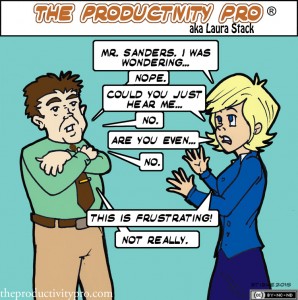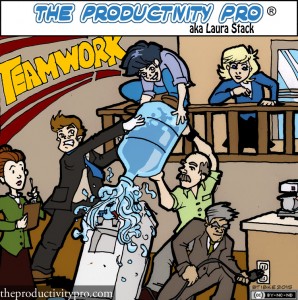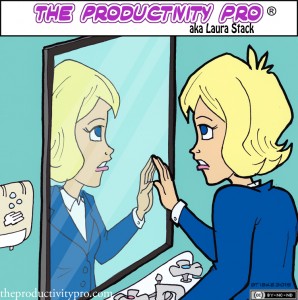
"Behavior is the mirror in which everyone shows their image."—Johann Wolfgang von Goethe, German writer and statesman. In recent months, I've conducted Q&A surveys via my Productivity Pro® newsletter, collecting the results using the SurveyMonkey app. If you're a reader, you've probably seen them; you may even have responded—thank you if you did! I've learned some interesting facts from my readers, most of which have direct application in any workplace. One of the first questions I asked my readers was, "What bugs the you-know-what out of you?" Given the wording, I expected some blunt answers, and that's what I got. Most respondents listed their greatest pet peeve only, but some listed several. They came down to three broad categories: Lack of … [Read more...]








